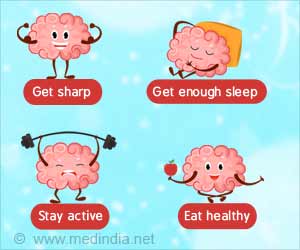Celebrate this New Year by not drinking alcohol at all. However, you can take in safe amounts by taking the right steps.
- Alcohol consumption has increased during the Covid-19 pandemic
- Excessive alcohol use can worsen your anxiety or depression
- So, try to avoid alcohol this new year for better mental health and overall health
“The pandemic is causing a lot of increased drinking all around,” said Dr. Sarah Kawasaki of Penn State Health, who is director of Addiction Services at the Pennsylvania Psychiatric Institute. She also sees patients at Penn State Health Cocoa Outpatient Center and Penn State Health Medical Group – Harrisburg.
“People are stressed. They feel isolated. Work, school and daily life are all just harder. Goals have been put on ice. Relationships have suffered. It’s hard to balance it all, and people are drinking their pain away.”
Committing to care
Perhaps a New Year’s resolution could include a little self-evaluation – how heavy is your dose of alcohol and has it been inching up over the past year?
Unfortunately, research shows the COVID-19 pandemic has increased drinking habits of both men and women since 2019.
Research supported by the National Institute on Alcohol Abuse and Alcoholism and non-profit research group RTI International found that, nationally, increases in alcohol consumption from February 2020 to November 2020 translated to 1 billion more drinks per month, 4.6 million more people exceeding drinking guidelines and 9 million more people binge drinking.
Other key takeaway points from that study showed increases in alcohol consumption and worsening of drinking patterns were larger for women and individuals with children in the household and were disproportionately larger for Black people.
The increase is especially worrisome since excessive alcohol use may lead to or worsen existing mental health problems, such as anxiety or depression, not to mention the damage it can do to the liver, heart and other organs.
Putting a game plan in place
“A Swiss physician named Paracelsus who lived in the 16th Century said that the only thing that determines if something is a poison or not is the dose, and that’s certainly true for alcohol,” Kawasaki said.
She cited some warning signs of worsening drinking habits:
- Waking up and having a drink of alcohol
- Trying to cut back on alcohol consumption and failing
- Getting annoyed when someone suggests you might be drinking too much
- Feeling guilty about how much you’re drinking
- If you’re worried, Kawasaki say the first step is to have a discussion with your doctor.
The surest way to head into a healthier New Year is to not drink at all. However, if that’s not realistic for you, take the right steps to find out what’s safe, given your particular risk factors and current health status, she said.
Source-Newswise















